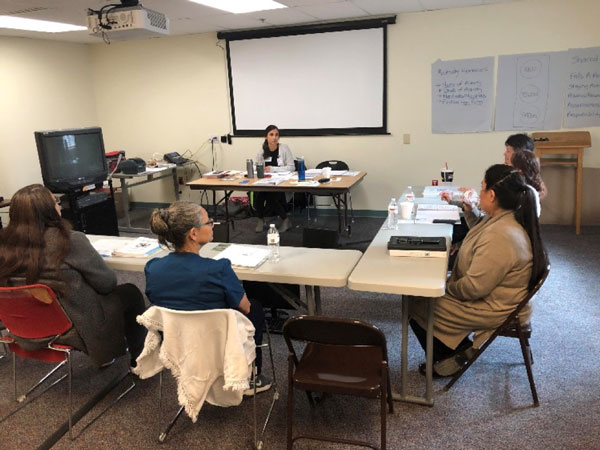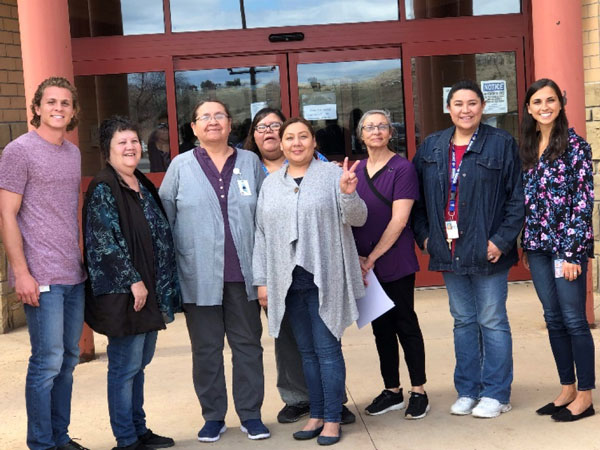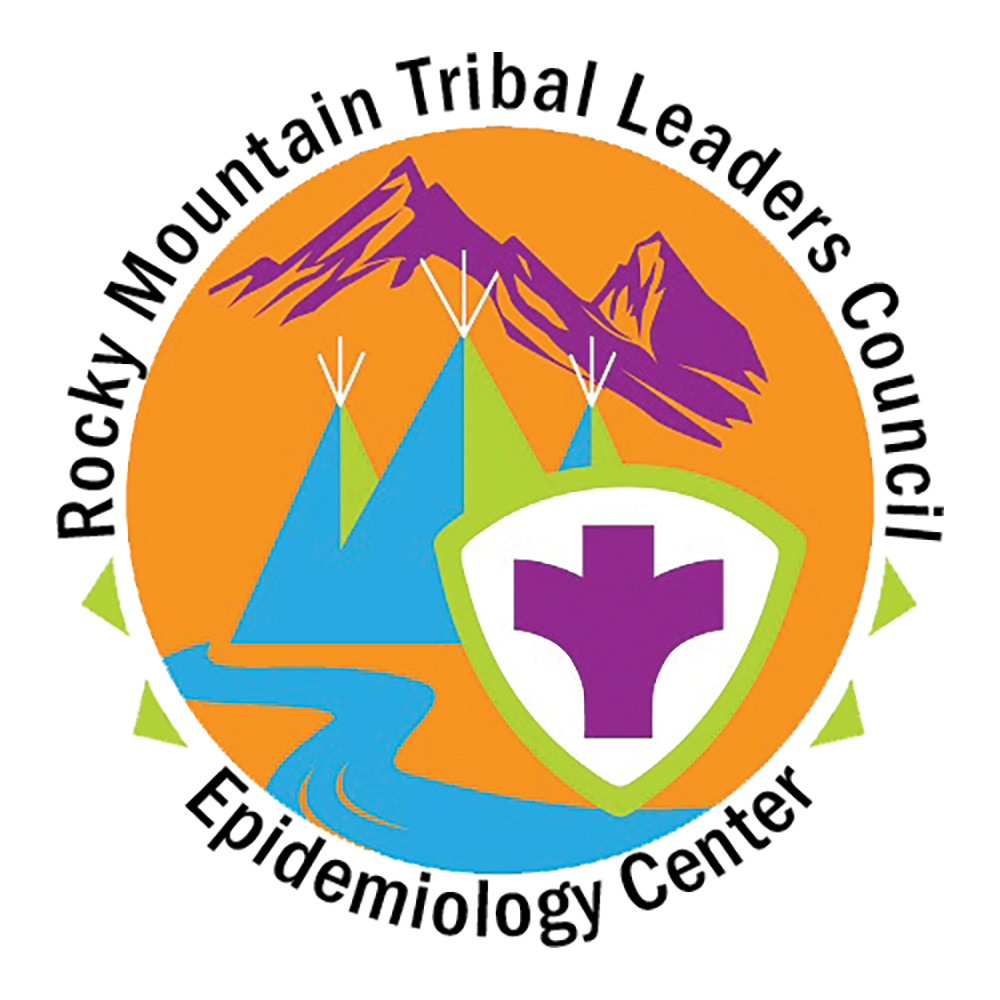Elderly Fall Prevention
The Rocky Mountain Tribal Leaders Council, Epidemiology Center (RMTEC) has been working with the IHS Billings Area Office to implement an evidence-based program entitled A Matter of Balance, as a part of Elderly Fall Prevention.
A Matter of Balance program includes both an education and exercise component and is designed to reduce the fear of falling and increase the activity levels of older adults who have concerns about falls.
In November 2018, an employee from each office attended a training to become A Matter of Balance Master Trainers. As Master Trainers, their role is to train volunteer coaches in the Tribal communities, who will then go on to facilitate A Matter of Balance classes in their communities.
Recently, the Master Trainers held their first coach training, and six volunteers became certified as A Matter of Balance Coaches. These coaches plan to start their classes in late spring or early summer. The Master Trainers are excited to train more volunteers in the other Tribal communities and plan to have A Matter of Balance Coaches trained in each site by the end of summer 2019.

 Kaylee Vandjelovic, Public Health Specialist at RMTEC and one of the Master Trainers, discussing A Matter of Balance program during the coach training.
Kaylee Vandjelovic, Public Health Specialist at RMTEC and one of the Master Trainers, discussing A Matter of Balance program during the coach training.
 The six new volunteer coaches with the Master Trainers, after completing the two-day training and earning their certificates.
The six new volunteer coaches with the Master Trainers, after completing the two-day training and earning their certificates.
